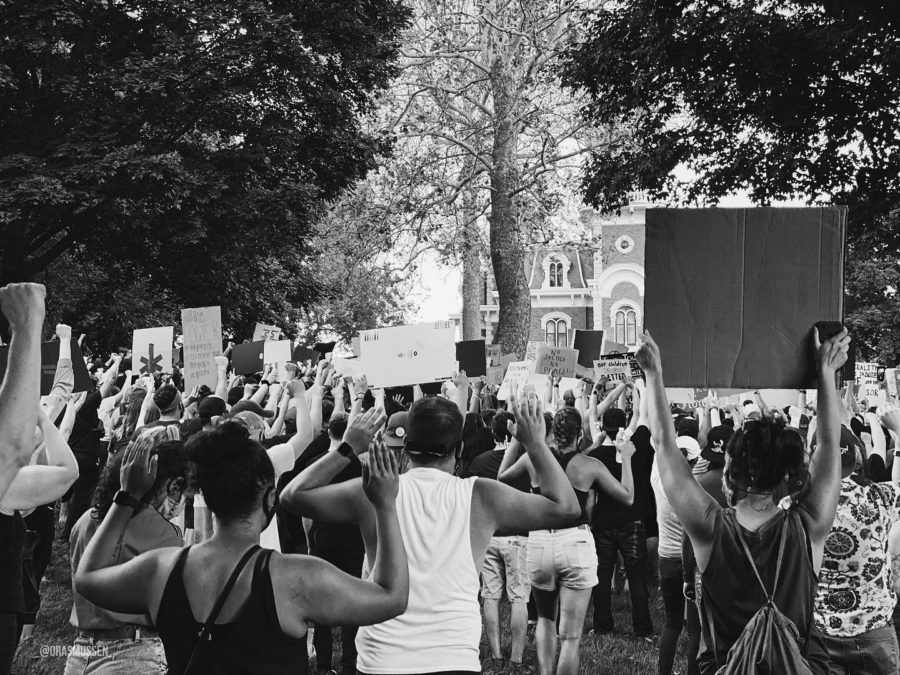Rasmussen: Who is eligible for freedom of speech?
July 17, 2020
Des Moines Black Lives Matter recently held an event titled “Des Moines BLM Court Support & Freestyle Friday,” which included members of the community gathering in support of arrested protestors who were having their first hearings in front of a judge, as well as a family-friendly event of speakers and artists.
Attendees of the event took to the public sidewalks to write messages pertaining to the movement and messages linked to individual emotions and expression with chalk. All of the chalk was quickly erased with water and multiple eyewitnesses cite hearing threats of chemical weapon use because of the chalking.
Des Moines police were quick to issue orders that the location of the event get moved only 30 minutes into the planned event. Des Moines police officer Todd Dykstra threatened to arrest Jaylen Cavil, a local Black Lives Matter organizer, for utilizing his freedom of speech via a megaphone. Per the Des Moines Register, “Cavil told a Register reporter that Dykstra was the officer who arrested him last week in front of the police station while questioning officers about detaining a fellow protester.”
Let’s rewind to the previous fall semester and look at Iowa State University. Swastikas, “Heil Hitler,” “Trans(gender) rights are not human rights” and other deplorable messages were written in chalk and scattered across campus for days. When faced with pressure by students, the university decided to ban chalking on sidewalks and then changed the ban to a restriction under certain circumstances. Free speech groups threatened to sue Iowa State because these chalking restrictions were allegedly restricting the First Amendment.
While I understand the Black Lives Matter event in Des Moines is different from what was happening at Iowa State, the common denominator is who gets a full ride with the First Amendment and who doesn’t, and in both cases, through the use of chalk.
Here’s the difference: Des Moines Black Lives Matter and attendees wrote messages of unity and also messages of rightful anger toward the system and the people (who willingly choose that career path) who are actively oppressing Black people. The messages at Iowa State were pro-Nazi, anti-Semitic, anti-trans and blatant white supremacy propaganda, all of which were targeting multiple groups of students who attend Iowa State. Iowa State’s chalk restrictions were for the safety of those students and for human decency.
While Iowa State had to deal with the College Republicans and other groups demanding their right to publicly dehumanize people on campus, the Black Lives Matter movement is constantly being silenced and their freedom of speech is consistently met with threats. Where are those free speech groups now? Or is it different because this time the message is focused on uplifting the Black community?
This is, yet again, another example of white privilege as well as the First Amendment being weaponized by white communities but not being applicable to people of color or folks advocating for marginalized communities, especially in the face of law enforcement.

















